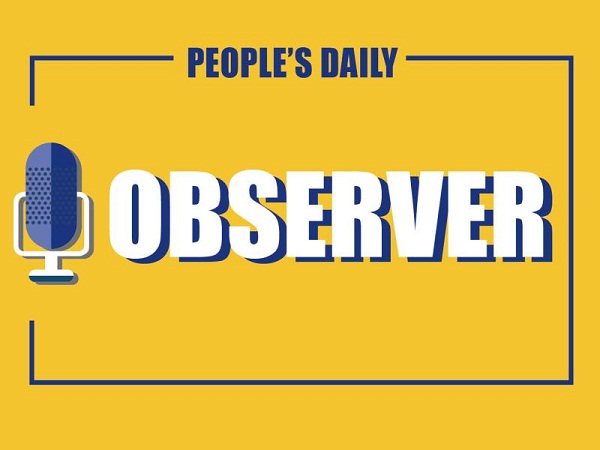
On Friday, US President Donald Trump said at a White House press conference that the US will take action to end Hong Kong's preferential treatment as a separate customs and travel territory of China. His administration will also impose sanctions on officials who are detrimental to "Hong Kong's Autonomy" and suspend the entry of Chinese students deemed to be detrimental to US national security.
Early on, some US politicians already threatened to impose sanctions on Hong Kong regarding the Hong Kong national security legislation. It's not surprising when the day finally came but the sanctions are ridiculous throughout.
Hong Kong is China's Hong Kong. To get involved in the business of Hong Kong is to interfere in China's internal affairs. It is constitutional, legal, and reasonable for the National People's Congress to advance the Hong Kong national security law on a national level, which is a consensus of all the Chinese people. This major decision involving Hong Kong is in accordance with the Constitution and the Basic Law of the Hong Kong Special Administrative Region and in line with the fundamental interests of all Chinese people including Hong Kong compatriots.
It is China's internal affair to safeguard its national security and maintain the stability of Hong Kong. On what grounds do US politicians think they have any say on this matter? Who gives the US government the power to sanction China? If this kind of interference in China's internal affairs is not hegemony, then what is?
The most ridiculous thing is that some US politicians recently threatened to revoke Hong Kong's status as an independent customs territory. It is not only unconscionable, but also ignorant. Hong Kong's status as an independent customs territory was given by the General Agreement on Tariffs and Trade (GATT), the predecessor of the World Trade Organization (WTO), not by these politicians. Does the US really see the WTO as its own institution? What the US government is capable of, at most, is to terminate the different tariff, export control and travel treatment policies it grants Hong Kong.
Even so, the US will have to think about the consequences: the trade surplus US has made from doing business with Hong Kong over the past decade is higher than that with any of its trade partners globally. From 2009 to 2018, the total worth of trade surplus it made with Hong Kong reached $297 billion.
According to media reports, the Hong Kong SAR government has made, in response to the US' possible economic sanctions on the city. Even if the US seeks to strike Hong Kong by revoking its separate customs territory status, launching restrictions on sensitive technology exports and disturbing the linked exchange rate system, the impact will be manageable for Hong Kong. Besides, the central government has been a pillar for Hong Kong to deal with any difficulties, and it is no exception this time.
Some US politicians have repeatedly violated international law and basic principles of international relations for personal gains from Hong Kong. However, the actual effect of such threats and sanction tools is limited and only shows how desperate they are.
The Chinese people have seen a lot of the US putting pressure, throwing threats and launching sanctions. Now, the US has threatened to sanction Hong Kong. It is the same pattern and is not going to cause fear or panic among the Chinese people.
"Hong Kong is China's Hong Kong and no one cares more about the prosperity and stability of Hong Kong and Hong Kong people's welfare than the central government," said a Chinese foreign ministry spokesperson on Friday. A piece of advice for some US politicians: stop interfering in Hong Kong affairs and China's internal politics in any form. The right path to take is to help promote the development of Hong Kong and the bilateral relations between China and the US.
(Compiled by Li Bowen and Zhang Yuanzheng)


